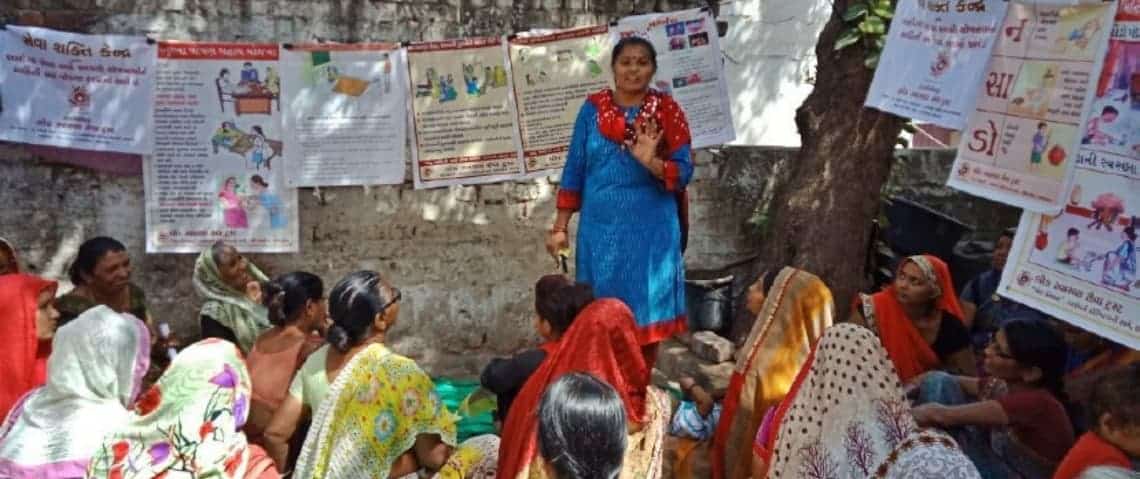Cooperatives are an important form of democratic organization and solidarity for informal workers, who come together to gain access to services and markets and to engage in collective negotiations.
WIEGO works with, supports and conducts research on cooperatives in many regions. Here is a sample of that work.
Waste Picker Cooperatives
Millions of waste pickers worldwide make their living collecting, sorting, reusing and recycling materials that others have thrown out. They are environmental and municipal heroes, responsible for keeping large amounts of waste out of our landfills, waterways and streets. By organizing themselves into cooperatives, waste pickers in many places have improved their incomes and working conditions while enhancing the services they can provide to municipalities.
In this International Labour Organization (ILO) spotlight interview (June 2018), WIEGO’s Waste Specialist Sonia Dias explains how Brazil’s waste pickers organized into co-ops. The article highlights the work of the Central Cooperative Solidarity Network of Workers of Recyclable Materials of Minas Gerais (Redesol), a network of co-operatives and similar associations in Belo Horizonte, Brazil.
Related reading
Recycling in Belo Horizonte, Brazil – An Overview of Inclusive Programming by Sonia Dias
Municipal Waste and Citizenship Forum: A Platform for Social Inclusion and Participation by Sonia Dias
Examining Waste Pickers' Health Risks
Waste pickers face particular risks to their health—and particular issues in accessing health care. WIEGO’s Urban Policies and Social Protection Programmes have teamed with waste picker co-operatives in Belo Horizonte to undertake the Cuidar Project, which is mapping health risks, sharing knowledge and enhancing waste pickers’ connections to local partners in the health arena. The project creates interventions that diminish health risks and to raise public awareness.
Co-ops and Child Care
Cooperatives run by workers for workers in the informal economy offer solutions in meeting women workers’ child care needs, while also protecting the labour rights of care workers. The joint ILO/WIEGO report Cooperatives Meeting Informal Economy Workers’ Child Care Needs (2018) examines three models—in India, Brazil and Guatemala—and explores challenges and opportunities. The report recommends the next steps in expanding cooperative provision of child care to informal workers.
Related Reading
WIEGO blog: Quality Child Care is a Missing Piece of the Poverty-Reduction Puzzle - A discussion with Mirai Chatterjee on SEWA’s holistic model and approach.
Co-ops and Health Care
SEWA’s health cooperative, Lok Swasthya SEWA Mandali, has established innovative Shakti Kendras (empowerment centres) across India that deliver invaluable benefits to SEWA members and their families. Shakti Kendras incorporate innovative best practices that extend social protections to informal workers.
In addition to providing preventative health information, community health workers spend long days helping SEWA members connect to government programmes and access the health benefits to which they are entitled. In rural and urban communities in India, SEWA’s Shakti Kendras have become a central hub serving informal workers who need help to access healthcare in a complex, bureaucratic system.
A Workers’ Lives essay, Bridges to Better Lives, offers an intimate look at these community health workers, the wide range of services they provide in a challenging policy environment—and what they gain in return.
Statistics and Cooperatives
Joann Vanek, former Director of WIEGO’s Statistics Programme, is a member of the technical working group on cooperative statistics, which was formed to prepare a resolution on Guidelines on Statistics on Cooperatives, which was reviewed at the 20th International Conference of Labour Statisticians in 2018.
ILO-WIEGO Report on Cooperation Among Informal Workers
In 2017, the ILO and WIEGO published a report summarizing the findings of an action-research project, global mapping and a survey conducted with members of existing cooperatives and other social and solidarity economy (SSE) enterprises and organizations. Cooperation among workers in the informal economy: Focus on home-based worker and waste pickers offers insight into the nature and role of cooperatives in formalizing the informal economy. It also contains a literature review and a set of recommendations. Read a summary of main findings.
